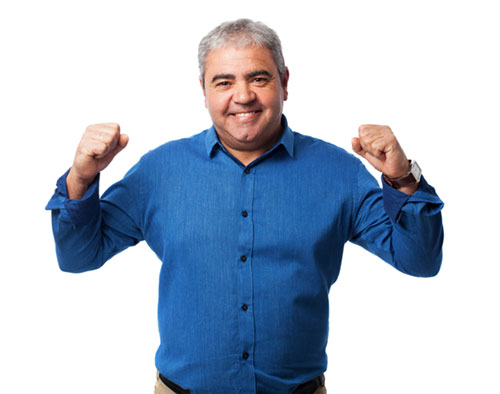All of us age but we need not become senile.
We need to know the difference between aging and senescence.

Aging is progressive wear and tear and reduction in the stem cell’s ability to produce new replacement cells, and the body’s ability to repair or remove damaged cells also breaks down. These cells are called senescence cells and are seen in older adults.
The goal of any antiaging initiative is to keep these senescence cells at a minimum, because if damaged cells are not removed or replaced or repaired, they can turn into cancer cells, or cause inflammation and speed up various other aging changes.
Normal aging is associated with dysfunction of the mitochondria (our energy engines), stem cell exhaustion (needed to produce new cells), accumulation of senescence cells, inflammation and oxidative stress damage, and metabolic and vascular dysfunction.
What are the lifestyle changes that can improve our chances of being cognitively, emotionally and physically healthy for as long as possible? Longevity has gone up today but it is critical to remain independent and healthy till the end.
We are all aware of what a healthy lifestyle includes – right diet, right exercise, right sleep, right thoughts, connection and contribution.
RIGHT DIET
Are there brain foods? How can you feed your brain what it needs?
The brain is 60% fat and 75% water.
While a high fat diet is harmful for the heart and the brain, it is important not to have a low-fat diet. So, the trick is to eat healthy fats, low in saturated fat, and high in omega-3 fatty acids. Foods which are good for the brain are oils like coconut and olive oil, nuts like almonds, pistachios, macadamia, seeds like flax seeds, chia seeds, pumpkin seeds and oily fish like sardines and salmon which are rich in omega-3. Vegetable included in brain foods is avocado.
Drinking 1-2 litres of water per day helps. Seniors particularly should be cautious about drinking too much water like 3-4 litres as sodium levels drop and a condition called hyponatremia can be life-endangering.
RIGHT EXERCISE
Should include flexibility exercises like yoga, resistance exercises or strength training like working out with light weights or stretch bands, and aerobic exercises which consist of repetitive movements causing us to increase our heart rate like walking, running, swimming, cycling, dancing, etc. Balance training is extremely critical for seniors as the commonest condition which puts an older person to bed, (which has further complications) is falls.
Exercise, even as little as 15-20 minutes of moderate intensity five days a week, can make a big difference to the way our body ages. A substance called BDNF (brain derived neurotropic factor) increases after exercise. This counters the stem cell exhaustion which is responsible for producing new cells.
RIGHT SLEEP
Many seniors find it hard to get good sleep. As young babies, the required amount of sleep is 15 to 17 hours a day. As we become adults, the sleep requirement reduces, but we ideally need 6-8 hours every night. If we are active physically throughout the day, more often than not, natural sleep follows. Having the room dark, at the right temperature and going to bed 3-4 hours after a meal rather than after a late dinner close to bedtime helps.
Power naps during the day can be helpful but if too prolonged can interfere with night sleep.
The ideal duration to feel refreshed after a power nap is 20-25 minutes.
Longer naps leave us groggy and dull.
RIGHT THOUGHTS
How can thoughts decrease our longevity or make our brains age faster?
The Spirit-Mind-Brain-Body is a powerful system which balances and impacts our health in our spiritual, mental, emotional and physical domains.
Limiting beliefs, negative thoughts are the brain’s way of protecting us. It is a survival response where the brain is constantly looking out for danger, even when it is not there sometimes. Adrenaline and cortisol are stress hormones which can damage our body and reduce our immunity and ability to fight disease.
Managing our lives to remain resilient and responsive instead of being reactive helps us keep this connection alive.
Positivity, optimism, purpose, passion, contribution, connection can all raise our vibrational frequency and influence our mindset which releases happy hormones like dopamine, serotonin, oxytocin, and endorphins which nurture and nourish the brain.
CONNECTION
Man is a social animal. We need to interact with others and connect with family and friends.
Loneliness and isolation are very destructive to brain health.
Surrounding ourselves with positive people who support and encourage us in our daily life journey increases longevity. People with a lot of friends, regular socializing and couples who stay together for several years live longer, healthier lives.
CONTRIBUTION
Each of us has a unique DNA and are one of a kind.
Having purpose and passion, know why we do what we do is essential to thrive.
Faith in a higher power, regular alone time with our inner selves, contributing our talents to the world, and helping others are all activities which can nurture and keep the brain healthy.

Dr. Prithika Chary
Senior Consultant Neurophysician, Neurosurgeon & Epileptologist
Kauvery Hospital Chennai
